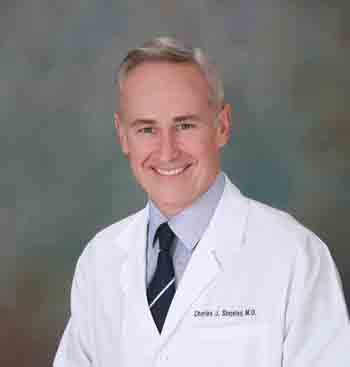The U.S. Bankruptcy Court in Detroit confirmed Wayne State University Physician Group’s Chapter 11 plan of reorganization and approved its emergence from bankruptcy protection June 3.
“This is tremendous news for our patients, providers, staff and the Detroit community,“ said Charles Shanley, M.D., WSUPG president and chief executive officer since March 2018. “Emergence from bankruptcy protection is a critical milestone in creating a stable future for the faculty of the Wayne State School of Medicine supporting its medical education, research, patient care and community service missions. It allows WSUPG to continue its rebirth as a thriving, multispecialty academic group practice providing high-quality medical care for the Detroit community and a superior educational experience for the next generation of physicians.”
M.D., WSUPG president and chief executive officer since March 2018. “Emergence from bankruptcy protection is a critical milestone in creating a stable future for the faculty of the Wayne State School of Medicine supporting its medical education, research, patient care and community service missions. It allows WSUPG to continue its rebirth as a thriving, multispecialty academic group practice providing high-quality medical care for the Detroit community and a superior educational experience for the next generation of physicians.”
WSUPG filed for Chapter 11 reorganization in November 2018 to stem ongoing financial losses, reorganize, and modernize its financial and business operations and consolidate its expensive and expansive clinical footprint.
“The unwavering support of WSUPG’s board of directors, medical school Dean Jack D. Sobel, University President M. Roy Wilson and the WSU Board of Governors, as well as our faculty and staff, was instrumental in achieving court confirmation and emergence from bankruptcy in an accelerated time frame of just over six months,” Dr. Shanley said.
“Thanks to the collective effort of a number of parties, including the judge and office of the U.S. Trustee, this case moved through the court quickly and effectively,” said Mark Shapiro of Steinberg, Shapiro and Clark, the firm representing WSUPG in the bankruptcy proceedings. “This was a monumental task and I could not be happier with the results.”
To implement its court-approved reorganization plan, WSUPG’s management and clinical leadership are partnering in six interdisciplinary teams to transform and modernize its core business and financial operations, clinical footprint, revenue cycle, patient access, physician compensation, business relationships and organizational culture.
Developed in partnership with turnaround consultant AlixPartners, the reorganization plan is expected to move WSUPG from a $8.1 million loss in 2018 to a $3 million profit by 2022 through savings or revenue improvements.
WSUPG’s reorganization efforts are being supported by Wayne State University through a Restructuring Support Agreement that provides critical financial assistance to allow the practice plan to resolve past debts with creditors and rebuild for the future.
Also key to WSUPG’s future success was the negotiation of a five-year clinical and administrative services agreement with the Detroit Medical Center in September 2018 to ensure access to high-quality specialty care for the Detroit community and a stable educational platform for DMC-based faculty, students and resident physicians.
Work is well underway to reorganize WSUPG as a highly-efficient, modernized academic group practice serving the needs of patients, faculty, students and community.
WSUPG is partnering with athenahealth Inc., of Watertown, Mass., to implement an industry-leading, cloud-based software platform to modernize financial operations and to benchmark its revenue cycle performance with thousands of providers across the country. Athena’s partner, Atlanta, Ga.-based Caduceus Healthcare, is helping to improve revenue cycle business operations and position WSUPG to succeed in the era of value-based reimbursement. Both efforts are targeted for implementation this fall. The athena/Caduceus partnership has the added benefit of future options to add platforms for a fully-integrated electronic health record to facilitate robust quality and outcomes reporting and population health management.
As part of its reorganization, WSUPG has consolidated its network of outpatient locations to focus on serving the needs of the Detroit community and the WSU School of Medicine. WSUPG is conducting due diligence on a specialized multidisciplinary ambulatory site, ideally located in Detroit’s Midtown area.
“WSUPG physicians provide primary and specialty care for some of the most medically complex patients and underserved populations in metropolitan Detroit,” said Dr. Shanley, who also serves as vice dean of Clinical Affairs for the Wayne State University School of Medicine. “Our future lies in streamlining access for the Detroit community, especially its most vulnerable residents, to high-quality and cost-effective care in collaboration with Detroit’s primary care physicians, federally qualified health centers, the Detroit Medical Center, Barbara Ann Karmanos Cancer Institute and Henry Ford Health System. We are on a path to be a leading urban academic practice, in a thriving city, recognized for innovative delivery of high-value care to the most complex and vulnerable members of the community. It’s a new era for WSUPG.”
June 4, 2019